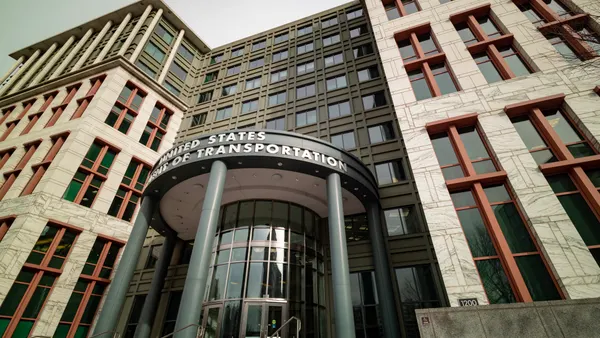Dive Brief:
- Albertsons has agreed to pay $2.5 million to settle a class-action lawsuit brought by current and former truck drivers at its Irvine and Brea distribution centers, alleging the grocery chain did not pay workers for reporting time as required by California law.
- The plaintiffs claimed that the employer's call-in scheduling policy, which required part-time drivers to "report" to work each evening by calling in to determine whether they were scheduled to work the following day, violated state law.
- The drivers also alleged Albertsons failed to pay them for pre-shift work, failed to compensate them for business expenses by capping expenses at $80 a day, failed to provide sick leave in accordance with local ordinances and failed to pay them for time spent in bag searches.
Dive Insight:
California's wage and hour laws include a "reporting time" aspect, which requires employers to pay workers if they must report to work but are "not put to work or [are] furnished with less than half of their usual or scheduled day’s work because of inadequate scheduling or lack of proper notice by the employer," according to a California Labor Commissioner FAQ document.
Some states and cities have gone beyond protecting reporting time and approved predictive scheduling measures. Some of the laws apply only to certain industries, such as retail; others set a maximum wage for protection.
In California, San Francisco and Emeryville have adopted "fair workweek" laws, requiring that employees receive advance notice of their schedules and mandating that employers pay a premium for last-minute changes or shift cancellations. This year, a predictive-scheduling measure went into effect for Chicago on July 1. Other jurisdictions, however, have adopted laws preempting such legislation.
Experts generally agree that unpredictable schedules are detrimental to workers, creating uncertainty over matters such as budgets, childcare and medical appointments. Research shows that unpredictable schedules have negative health effects on workers, too.
Shift workers are more susceptible than their peers to sleep disorders and metabolic syndrome, which elevate the risk for stroke, heart disease and Type 2 diabetes, researchers reported in The Journal of the American Osteopathic Association.
A 2019 study of Gap employees also revealed that irregular shifts damage worker health, determining that the stress of working erratic shifts, being on call and rearranging personal activities to accommodate work schedules can deprive employees of sleep and raise their risk of developing adverse health conditions.
However, some business advocacy groups have pushed back against the laws, arguing that it is unrealistic or impossible for small businesses to create work schedules weeks in advance.
Some large employers, especially in the retail sector, have voluntarily moved to a scheduling system designed to eliminate some of the problems associated with rigid or unpredictable, on-call schedules. In 2018, Walmart adopted a scheduling system that provides predictable core hours for employees, but allows workers to swap shifts or pick up extra shifts on their own.











